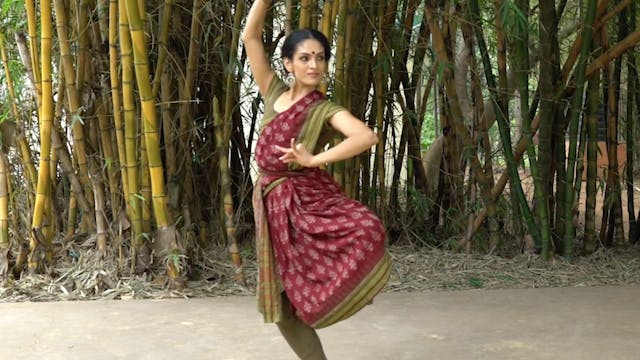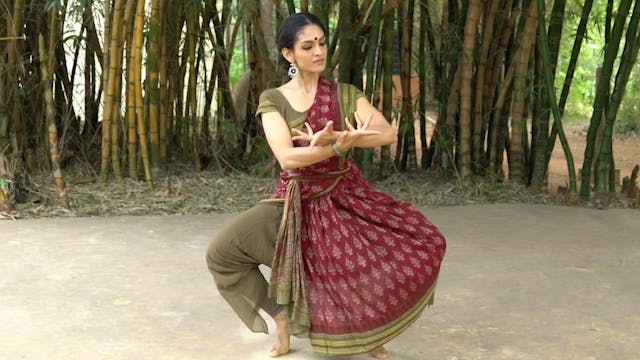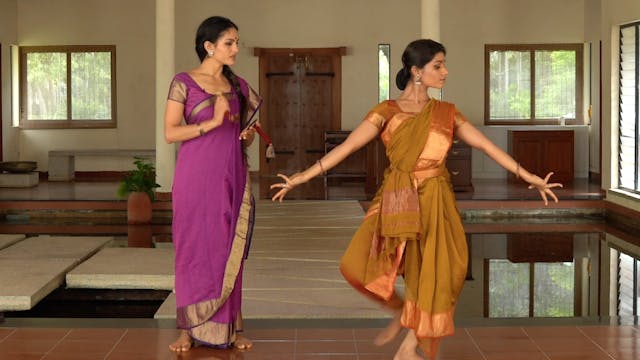Pakkadavu 3
Playlist 7
•
3m 33s
Pointers for Pakkadavu 3:
Keep your shoulders down when lifting your arms.
Make sure your arms do not go too far back.
Follow your arm and keep your gaze toward the wrist of the arm you are bending away from.
Make sure you keep your thighs pushing back while retaining Swastikam in your feet.
The Pakkadavu name is derived from the movement of the entire body as opposed to a name derived from specifically the articulation of the feet. The Raadha Kalpa method practises four different types of Pakkadavu to create specificity in feet articulation. The movement of the arms are interchangeable and can be varied to an even greater number when placed in choreography.
The four types that are introduced, address with clarity four types of feet articulation in combination with most commonly used arm movements.
This progression is unique to the Raadha Kalpa method as it changes the starting and ending of each Pakkadavu by changing the use of Tattu in Araimandi or Swastikam.
Pay specific attention to the feet articulation in the Pakkadavu series. Start with the first one and then progress to the rest.
Up Next in Playlist 7
-
Pakkadavu 4
Pointers for Pakkadavu 4:
- Keep your shoulders down when lifting your arm.
- Make sure your arm in front of your chest doesn't cross the centre of your chest.
- Make sure you do not sit in your hip when lifting one leg. Keep the thigh pushing back on the standing leg
- do not rest your raised ... -
Kuditta Mettaduvu
Pointers for Kuditta Mettadavu:
Try to go down instead of hopping up each time you snatch onto your heels.
Keep dropping your tailbone and pushing your thighs back.
When you bend to the side, try not to have any form of a forward bend.By the time you progress to the Kuditta mettadavu, your l...
-
Paraval adavu
The Paraval adavu moves to the side, like the Pakkadavu, but the srea covered is expansive. The articulation of the feet changes. There are many varieties in this adavu. Although Paraval serves as an umbrella classification, sometimes we call the adavus by varied names based on how the feet inter...


